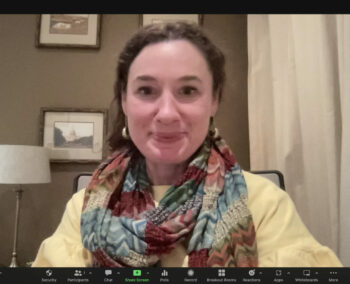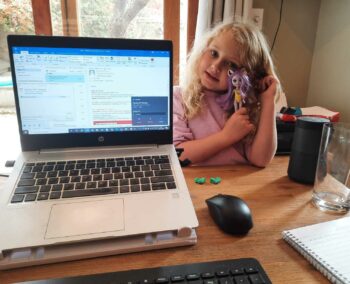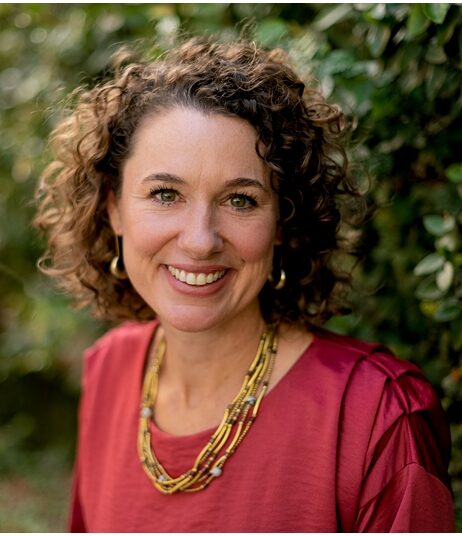100 Days of Listening and Learning – What I heard
I had the privilege of spending my first few weeks on the job working from the Open Gov Hub in Washington, DC. I benefited immensely from both the planned and unplanned conversations with partners and other ‘Hubbers’ while waiting for my turn at the coffee machine. And then I returned home to Johannesburg and remote working. I keenly missed these moments of listening and learning. So, I put out a call for support. And you delivered.
More than forty Global Integrity friends agreed to join me for yet another online meeting to share their experiences and ideas. You hail from five continents. You are activists, practitioners, researchers, political scientists and technologists. You represent academia, civil society, media and multilateral institutions. You work locally, nationally, regionally and globally. And across every listening session I heard unwavering commitment for our common purpose – to ensure that public resources are being used effectively to respond to people’s needs and priorities.
There were also some overarching themes.
Positioning. After listening to you, here’s my main takeaway: you value Global Integrity – both what we contribute directly to the open governance agenda, and how we support the sector writ large as an amplifier and accelerator. You also want us to make big and tough decisions and focus our efforts.
Specific ideas that you shared, which resonated with me:
- The localization movement and how Global Integrity’s experience in enabling locally led governance reform can be leveraged to accelerate shifts in policy and practice that support local leaders.

Zooming in.
- The strategic niche we fill as a bridge – between sectors, industries, geographies and issues – and how we can be more intentional and strategic in forging meaningful relationships that unlock our collective potential as a global community of governance reformers.
- The need to continue practicing and advocating for systems thinking and political economy approaches that challenge technical, blueprint solutions and help us get to the root causes of the misuse of public resources.
- The expectation that we continue to provide research and analysis that anticipate trends, inform policy and practice, and challenge assumptions around how to strengthen governance systems.
- The potential of the Open Gov Hub – a key element of who we are and what we do – as a space for governance reformers to realize resource efficiencies, collaborate, and collectively define and drive policy agendas that strengthen governance systems.
- The impact of the digital transformation on our societies and the nature of the problems we seek to address, and the need to enhance our understanding of digital governance and digital technologies and adapt accordingly.
Collaboration. You have a strong appetite for connections, collective learning and co-creation, across geographies and thematic issues, that would make us more effective and impactful as a community.
Specific ideas that you shared, which resonated with me:
- The need for more spaces that facilitate connections with other actors, allow you to share your work and generate public awareness and new partnerships, and scale promising initiatives and generate innovation transference across different themes and geographies; there was also a lot of interest in getting to know the Open Gov Hub Global Affiliate Hubs, more specifically.
- The potential to partner on open data and action research that enhances the use of public resources – from providing entry points in contexts where anti-corruption initiatives are not tolerated to using a political economy lens that improves the practical application of evidence.

Channeling creative energy behind the screen.
- The centrality of the effective use of public resources as a core issue in any development debate and the particular importance of working together to enhance the sector’s understanding of the intersections of corruption and climate accountability.
- The call for us to collectively define and project a compelling narrative for governance, i.e., why it matters and why governance reformers require strategic resourcing and partnership.
- The imperative to enhance support for local governance reformers by providing longer-term strategic partnerships and coordinating with global allies to improve engagement with key national and regional platforms.
- The importance of embracing radical collaboration with diverse governance reformers to expand our collective reach beyond capital cities, and better represent the voices and priorities of traditionally excluded communities.
Influencing. You appreciate the collective knowledge and power of the Global Integrity community and are keen to work together to influence governance systems in ways that improve the lives of the people we serve.
Specific ideas that you shared, which resonated with me:
- The potential for Global Integrity to use our research and other datasets more effectively in supporting evidence-based advocacy.
- The need to shift from technical solutions to systems change initiatives and approaches like participatory systems thinking and political economy analysis.
- The demand for resourcing practices that support (a) sustained, longer-term responses to entrenched governance challenges, (b) networked approaches that are more effective in building open governance systems, and (c) local governance reformers who are the drivers of change.
- The desire for joint advocacy that strategically brings diverse stakeholders together to act collectively in response to specific political/ policy opportunities; recognizing that we need to do more to understand our audiences and their incentives for collaboration, and to invest in building trust and relationships for meaningful multi-stakeholder partnerships.
- The importance of media integrity and the critical role that the media plays in supporting people’s agency to challenge the ineffective or inappropriate use of public resources by educating the public, generating public demand for reform, and inspiring a new generation of governance reformers.
- The potential of framing corruption as the antithesis to peace, democracy and development, and clearly making the link between governance and the use of public resources and key global challenges like the rise of authoritarianism, conflict, inequality and climate crises.
Listening and learning is part of Global Integrity’s DNA. This listening tour was just one example of how we aim to learn from, and serve, our global community, and value their diverse backgrounds, opinions and perspectives.
I am committed to continuing our conversation – just let me know when you’re ready to talk! (You can reach me at Amy.Miller-Taylor@globalintegrity.org.)
In the meantime, I’ll be thinking about how to sharpen the focus of our work by testing the limits and possibilities of working in specific geographies, with specific actors, on specific issues and towards specific policy agendas, while at the same time allocating sufficient time and resources to learning and innovation through strategic partnerships and contracts.
We believe that local leadership and collective learning and action are essential elements for improving governance systems, fighting corruption and ensuring that public resources are used effectively to deliver better services for all.








It’s commendable to see a commitment to listening and learning, especially within a global community like Global Integrity. The diverse perspectives and ideas shared during this listening tour are valuable in shaping the organization’s future direction. Focusing on strategic partnerships, innovation, and addressing governance challenges is crucial for making a positive impact. It’s inspiring to see a dedication to collective learning and action to improve governance and the use of public resources. The potential for framing corruption as the antithesis to peace, democracy, and development is a powerful approach. Looking forward to the positive outcomes that will be achieved through these efforts!